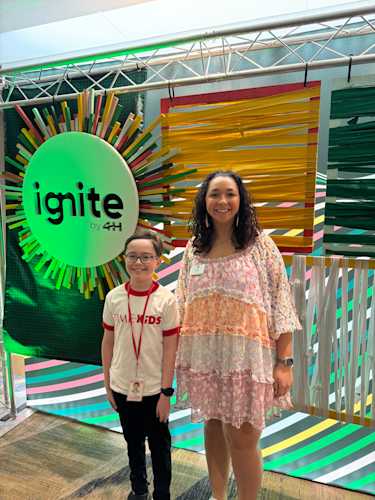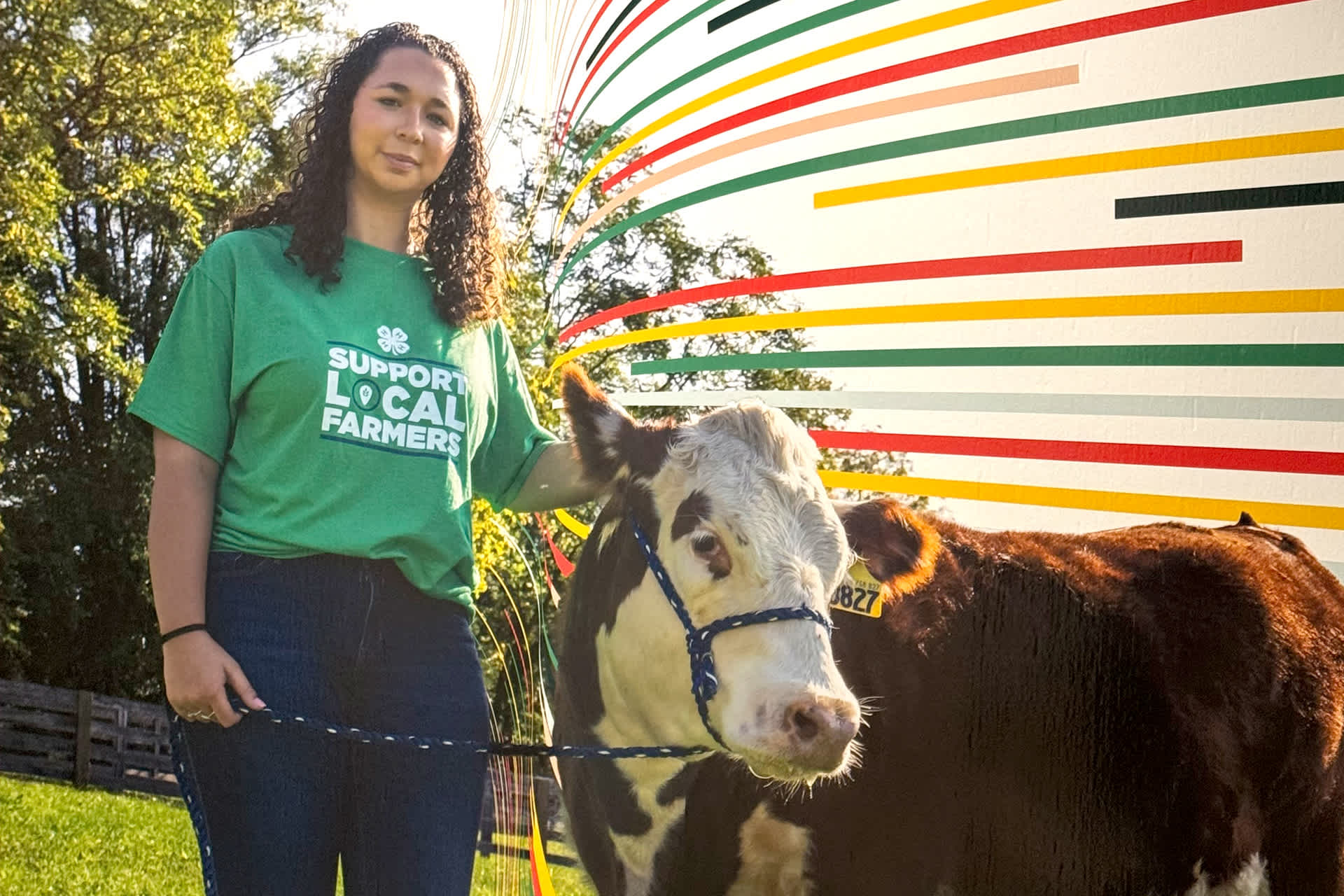Real Talk with Katie Collins

In March, TFK Kid Reporter Ben Stern attended Ignite by 4-H, an annual career readiness conference for teens. Ben interviewed Katie Collins, a 2024 winner of the National 4-H Youth in Action Award. Collins started a program called See Yourself in Ag. It teaches young people about careers in agriculture. Read the transcript below to learn about Katie’s project, in her own words.
What inspired you to start See Yourself in Ag?
The program got started when I read a book to elementary school kids called How Did That Get in My Lunchbox? I asked, “Does anyone know where your food comes from outside of your lunchbox?” And they all said, “The store!” It was amazing to me that my family owned a farm 20 minutes down the road from these kids, and they had no clue that their milk came from a cow 20 minutes down the road. That’s how I really got started: just realizing that kids didn’t have the same knowledge as me.

What’s the mission of See Yourself In Ag?
See Yourself in Ag connects rural, diverse youth to the world of agriculture. I wanted to show them all the careers in agriculture. I think there’s a misconception that agriculture is just farming. I wanted to show kids that the agriculture industry is technology, it’s research, it’s academia, it’s economics, it’s business—it’s lots of things other than just farming.
What are some of the skills needed to work in the agriculture industry?
The first one is [the ability to do] hard work. My family were dairy farmers. Cows have to be milked two times a day, every day of the year. And resilience. Resilience is a skill you need anyway, but especially in the agriculture industry. It’s ever-changing. People’s opinions on the agriculture industry are always changing, and different research is coming out. So I definitely think keeping your head up and just doing what you need to do every single day is a skill you need to have.
What types of jobs can people pursue to benefit the agriculture industry?
They can work in research, researching different things in academia. Some people are credit officers [who help finance agricultural operations]. Some people work in retail. People work in supply chain management. People are CEOs of businesses. They’re project managers; they’re lawyers. There are so many things. Every single person who plays a part and has a job in the agriculture industry is helping the industry.
You want to pursue a career in agriculture law. Can you tell me a little about that career and how it relates to your activism?
I grew up on a dairy farm, but staying on the farm wasn’t really something I wanted to do. I’ve always enjoyed the legal side of things, and so agriculture law is really where I want to lay my head. I think the advocacy behind that is showing kids that there’s so much to do. There are so many different ways to incorporate your passions and morph them into something that could relate to the agriculture industry.
Do you have any advice for kids who are interested in working in the agriculture industry?
My advice is that there’s always something out there for you. If you’re interested in technology, you can design tractors and robots and drones. If you’re interested in business, there are agriculture businesses. If you’re interested in law, there’s agriculture law. There are journalists—people who write papers or agriculture newspapers. There are so many different things out there. So find your passion, and then you can always relate it back to agriculture.
This interview has been edited for length and clarity.

